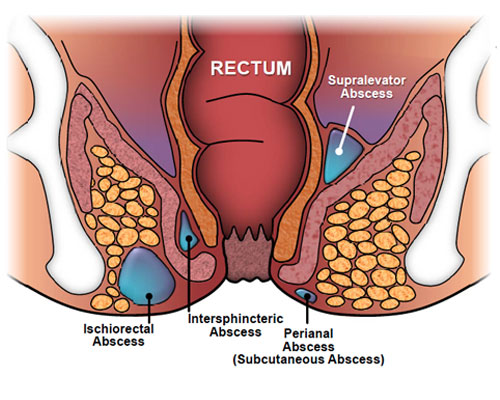Fistula

What is an anal fistula?
The anus is the external opening through which feces are expelled from the body. Just inside the anus are a number of small glands. If one of these glands become blocked, an abscess—an infected cavity—may form. An anal abscess is usually treated by surgical drainage, although some drain spontaneously. About 50% of these abscesses may develop into a fistula, in which a small tunnel connects the infected gland inside the anus to an opening on the skin around the anus.
What causes an anal fistula?
Most fistulas result from an anal abscess. A small number of fistulas may less frequently be caused by other processes such as Crohn's disease, sexually transmitted diseases, trauma, tuberculosis, cancer, or diverticulitis.
What are the symptoms of an anal fistula?
The following may be symptoms or signs of an anal fistula:
- Recurrent anal abscesses
- Pain and swelling around the anus
- Pain with bowel movements
- Bleeding
- Bloody or foul-smelling drainage (pus) from an opening around the anus. The pain may decrease after the fistula drains.
- Irritation of the skin around the anus due to persistent drainage
- Fever, chills, and a general feeling of fatigue. (However, these may be symptoms of many conditions.)
You should see your physician if you notice any of these symptoms.
